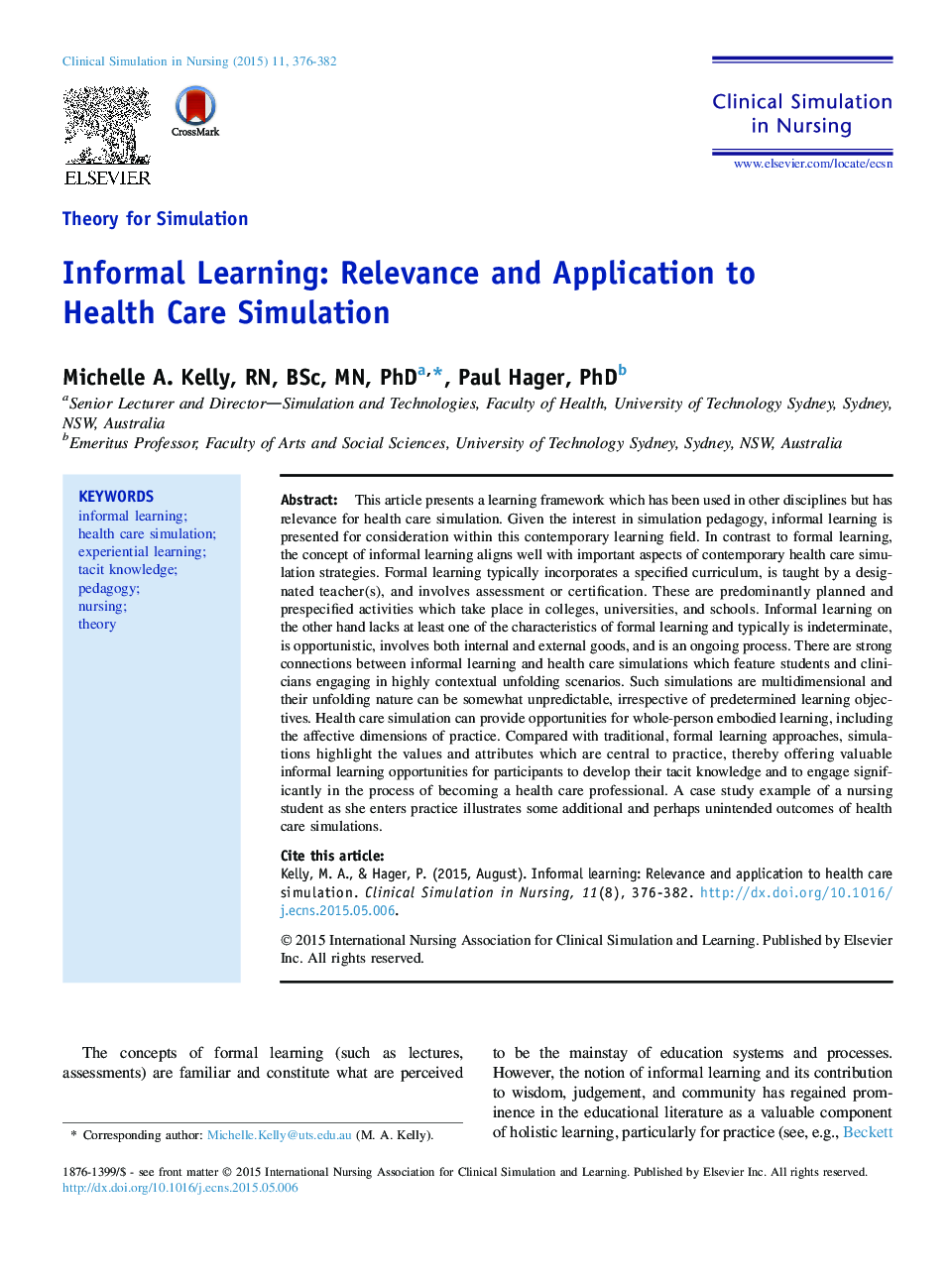| Article ID | Journal | Published Year | Pages | File Type |
|---|---|---|---|---|
| 5868250 | Clinical Simulation in Nursing | 2015 | 7 Pages |
â¢There is strong applicability of informal learning for health care simulations.â¢The design and implementation of simulations should arouse student enthusiasm, interest, and motivation.â¢Much valuable informal learning is significantly tacit and whole-person embodied learning.
This article presents a learning framework which has been used in other disciplines but has relevance for health care simulation. Given the interest in simulation pedagogy, informal learning is presented for consideration within this contemporary learning field. In contrast to formal learning, the concept of informal learning aligns well with important aspects of contemporary health care simulation strategies. Formal learning typically incorporates a specified curriculum, is taught by a designated teacher(s), and involves assessment or certification. These are predominantly planned and prespecified activities which take place in colleges, universities, and schools. Informal learning on the other hand lacks at least one of the characteristics of formal learning and typically is indeterminate, is opportunistic, involves both internal and external goods, and is an ongoing process. There are strong connections between informal learning and health care simulations which feature students and clinicians engaging in highly contextual unfolding scenarios. Such simulations are multidimensional and their unfolding nature can be somewhat unpredictable, irrespective of predetermined learning objectives. Health care simulation can provide opportunities for whole-person embodied learning, including the affective dimensions of practice. Compared with traditional, formal learning approaches, simulations highlight the values and attributes which are central to practice, thereby offering valuable informal learning opportunities for participants to develop their tacit knowledge and to engage significantly in the process of becoming a health care professional. A case study example of a nursing student as she enters practice illustrates some additional and perhaps unintended outcomes of health care simulations.
